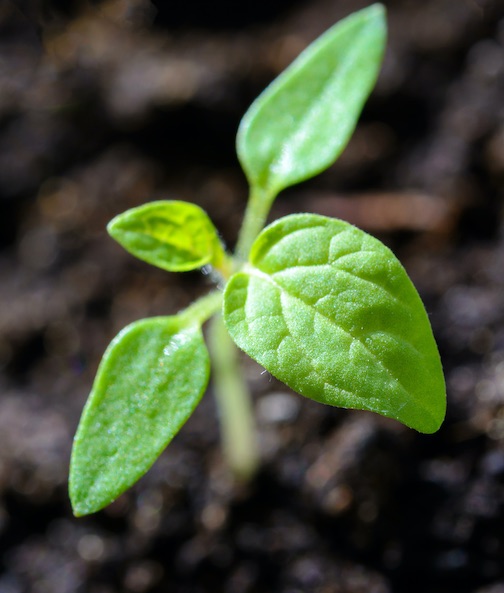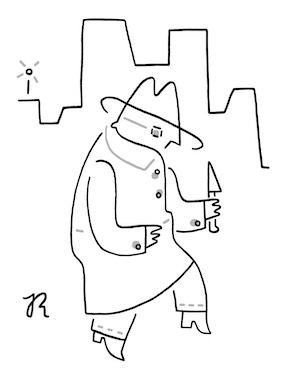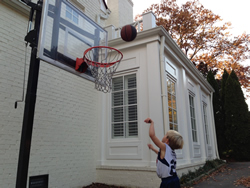Blood Oranges
What seems lost can be found in a bowl of golden fruit, offered in the year’s deepest dark
Christmas, again. And again, oranges. Not as precious as those of childhood, filling the toe of my stocking, along with the rattle of knobby walnuts and Brazil nuts, almonds and pecans — when most of the year oranges were scarce as hen’s teeth, my grandmothers would say, appearing in December like heavenly orbs. Moving often in my early years, then leaving my mother and her people in Nashville to live with my father across the state, I don’t have many childhood traditions. One I carry forward is a bowl of cut oranges like those my paternal grandmother, Louise, made at Christmas, fancier than mine, with fresh shredded coconut, more like ambrosia. Every year I bring oranges with dried cranberries to my daughter’s table, but they aren’t as prized and wrapped in memory for my family as for me.
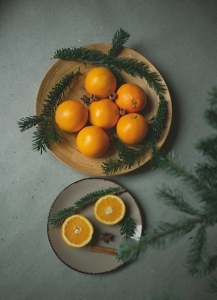
On Christmas Eve, I stand at the sink, pry open baseball navels, the perfect world of orange: heady zest to the nose, the bitter pith, my thumbs’ push, push to separate flesh from thick rind, not unlike pushing from the old year to the new, birthing the long hidden into daylight. My fingers ache until numb with cold, my Reynaud’s kicking in. I dig out the umbilicus of tiny sections at the base and slice as the knife and my blanched fingertips allow, pieces torn and ragged as we all are at year’s end, exhausted with shopping and spending and heightened merriment, the juices a precise spit in the eye. Then a snowfall of cinnamon to finish.
Strange that I cling to Louise’s dish when I was much closer to my maternal grandmother, Marie. I loved staying at her house, merely being in her presence, riding the bus to downtown Nashville, hearing stories of her work at the shirt factory — while Louise and I never connected well: shy, quiet, fluttery, with Coke-bottle glasses whose cataracts kept her fairly homebound. Louise doted on my father, as she did on my younger male cousin, but I never felt part of that orbit.
Not until her funeral decades later did I learn she was the youngest of ten children and later still, exploring our genealogy, that her parents died right before and after her first child, my father, and that she and my grandfather married only nine months before his birth. So much unsaid, unshared. I also learned of my German blood, though my DNA is mostly from the British Isles. Two generations before Louise’s grandmother, Susannah Waggoner, the family name was Wagner, my fourth great-grandfather, Johannes, born in Zweibrücken, Rhineland-Palatinate. Other names in the line are Keller, Vogelgesang, Runckel, Fritz. A true surprise, and oh how that Germanic blood trickles down the generations: the stoicism in Louise, the sternness and force in my father. The aloofness in both. The same traits I fight against in myself.
Maybe that’s why Louise revealed herself to me one middle of the night as a young teenager, trying somehow to bridge our emotional distance. I was staying at my aunt’s, sleeping on the couch in the living room. I awoke and saw Louise sitting in a chair looking at me. Just sitting and looking. Transparent and shimmering. In a flowery dress belted above her pooched belly, hose rolled above her knees, her glasses ghostly. It sounds like a dream, like wishful thinking, but I was fully aware. She was alive, not sick or distressed — had she died, appearing in visitation before leaving? Was she warning me of some impending doom? Almost 60 years later, my mind’s eye still sees her there. Was her message that she regretted our disconnection? That, like Marie, she sensed my shaky ground: my mother’s unpredictability and outbursts, an imbalance no one understood, much later diagnosed as bipolar disorder?
I think of the experience as an earthly/unearthly vision, a specter then and now—a girl born at the tail end of things trying to make her way, a young woman whose parents passed just as she began her married life, not speaking much about herself or her trials, so often working at the stove: her roasts and butterbeans, the oyster dressing my father adored at Thanksgiving, cornbread and fried apples, a compote dish of fresh-cut Christmas oranges. But in this strange apparition, this new blood trail from the Palatinate, Rhineland, Bavaria, Alsace, and Brandenburg, she does speak, saying she wanted to draw me to her but didn’t have the emotional tools or words.
Her gift is a locket: one side a portrait of missed opportunity, the other discovery and revelation. Her silence says wake up. Wake up to all that was cloudy in the past coming clear. Wake up and count the steps of my ancestors from far and away, across the sea, leading finally to Tennessee. Wake up to the presence of dear spirits who remain with us as guideposts, both within and ahead on the path. Wake up and feel, really feel, the wince of knife into skin while creating something beautiful, the sweet reconciled to sour, the night vision opening a startled heart and eyes — when what seems lost can be found in a bowl of golden fruit, offered in the year’s deepest dark, mounded and glistening like a hundred suns.
Copyright © 2024 by Linda Parsons. All rights reserved.
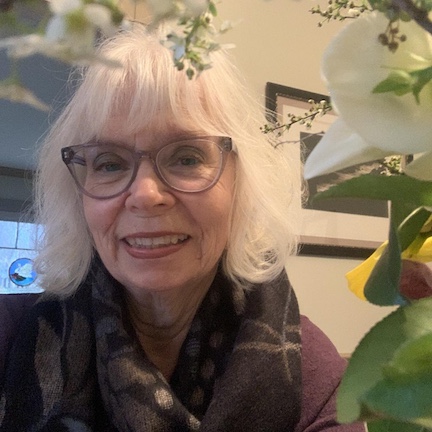
Poet, playwright, essayist, and editor, Linda Parsons is the poetry editor for Madville Publishing and the copy editor for Chapter 16. Her sixth collection, Valediction, contains poems and prose. Five of her plays have been produced by Flying Anvil Theatre in Knoxville, Tennessee. She is an eighth-generation Tennessean.
